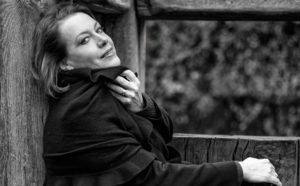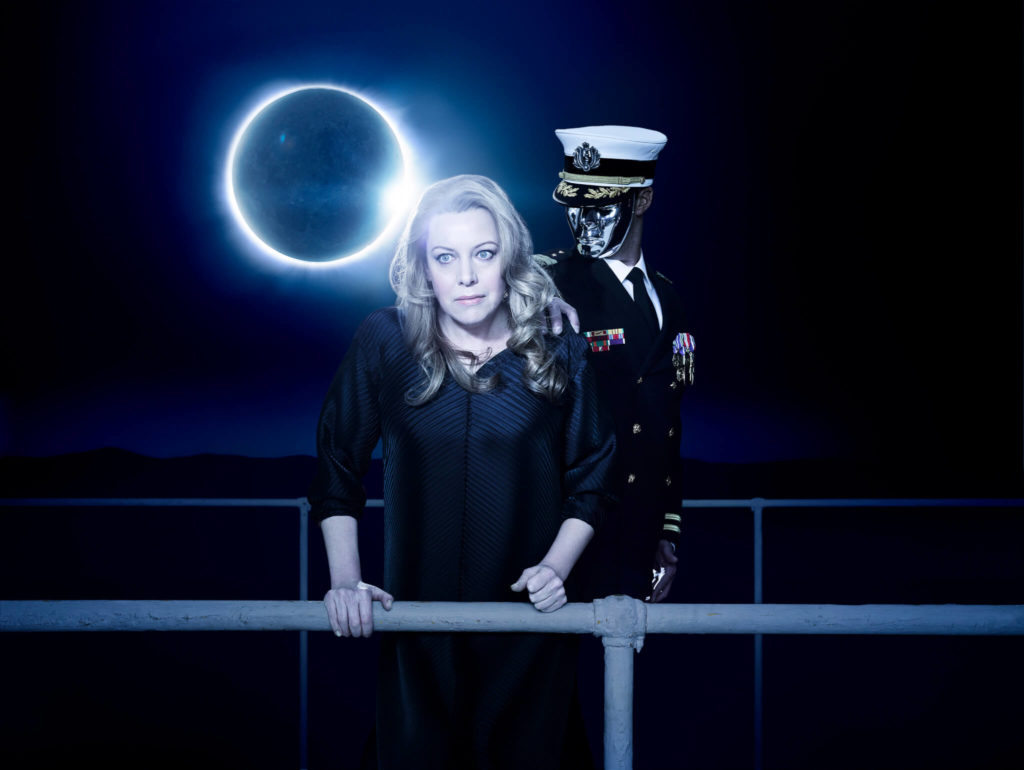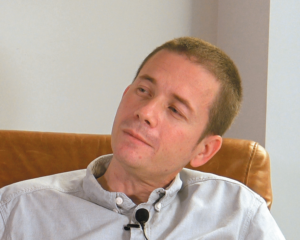
Q & A: Soprano Nina Stemme on the Privilege of Singing Wagner & Being a Vocal Storyteller
By Dejan VukosavljevicSwedish soprano Nina Maria Stemme has been broadly regarded as one of the greatest living dramatic sopranos.
What’s fascinating when you look at her career trajectory is seeing that the repertory for which she is best known seemed like a far cry during those early stage.
She made her onstage debut in the mezzo-soprano role of Cherubino in Mozart’s opera “Le Nozze di Figaro” in 1989 before turning to such roles as Rosalinde in “Die Fledermaus,” Mimì in “La Bohème,” Euridice in “Orfeo ed Euridice,” and Contessa Almaviva in “Le Nozze di Figaro,” among others.
But then, something happened. She realized that her voice had much more to offer and started to embark on the path that has taken her to the top. From there she engaged with such dramatic roles as Turandot, Jenůfa, the Marschallin in “Der Rosenkavalier,” Senta in “Der Fliegende Holländer,” Elisabeth in “Tannhäuser,” Elsa in “Lohengrin,” and Salome.
She debuted in the role of Isolde in Wagner’s “Tristan und Isolde” at the Glyndebourne Festival in 2003, and since then has appeared in a number of major dramatic roles, including both Sieglinde and Brünnhilde in the famous Wagner’s tetralogy “Der Ring Des Nibelungen,” Kundry in “Parsifal,” Elektra, and Die Färberin in Strauss’ “Die Frau Ohne Schatten.”
Her wide-ranging dramatic repertory has made her a fixture at the world’s greatest opera houses. She is set to take on the role of Isolde at the Deutsche Oper Berlin before taking on a full Ring Cycle at the Vienna State Opera in early 2020.
In anticipation of the soprano’s appearances in Berlin, OperaWire had a chance to speak with her about her trajectory, the roles that have defined her as one of the world’s top dramatic sopranos, and being a vocal storyteller.
OperaWire: When did you have the revelation that you wanted to become an opera singer?
Nina Stemme: Wow. I had this question so many times, but I think there were several revelations. I thought I was a chorus singer, but I always had a sore throat when I sang in choirs and in choruses. I went to a normal school with extra choir in Stockholm, so I took extra voice lessons now and then, but it didn’t really improve.
So it was another big revelation too, that I had a voice at all, because I thought I had a very ugly voice. I knew I could sing the notes, because I was supposed to be musical. But a beautiful voice was never my idea about the thing.
Then I went to a High school for one year in the United States, in Virginia. That was a Langley High School. Two thousand students, where we all got to an audition to All-Virginia State Chorus. It was a chorus of one thousand students, coming from all the schools of the entire state of Virginia. And when I auditioned, I thought I had nothing to lose.
Then we could see the scores we had, number of points – and I got the second highest score in my school. I was absolutely perplexed. Shocked.
But at that point I also started to be very curious, what is this? Why do they think I have a voice? Or that I could sing well at all? So this is a journey of curiosity that has been going on for decades now. Then I noticed, when I started to perform back in Sweden again, little concerts, that I had something to give. I had a story to tell that the audience was touched by. And when I felt that I had something to communicate, that took over the whole interest for me. That made it possible for me to endure all the hardships it takes to become a singer.
OW: In 1993, you won the Operalia competition. What do you think competitions reveal about the potential of a singer?
NS: I have never been in a jury, so I can only speak for myself. For me it was the first real chance to sing with an orchestra, a professional orchestra, in front of a huge audience and to tell a story, to sing an aria.
I just enjoyed making music. I took part in two competitions actually – Operalia in Paris and BBC Cardiff Singer of The World. We were very well taken care of and guided as young singers through these competitions.
I think also there is a danger that maybe some singers only become good at auditioning, and you know, singing a few arias in competitions. But I think you can see pretty soon when you have stark qualities, or whatever you’re looking for.
OW: You started your career singing lyric repertoire. How much, and in what way, did that experience bring you closer to the big dramatic roles?
NS: This lyric way of singing, I think, was a blessing and a curse at the same time. The blessing was that I was able to sing softly and piano. To use all the softness possible for the more dramatic roles.
But that also means that the voice risks going out of position technically. It has helped me to give softer qualities to my characters, but when I tried to be too soft, my voice did not really speak up for me when I started with the more dramatic repertoire.
I was not honest enough to use my whole voice and personality, and it took a long time to move away from the lyric way of singing.
OW: How do you deal with a huge stress of professional operatic singing?
NS: If I feel too stressed, I do mental training. I put on my headphones and listen to a recording of some kind of affirmation, or do yoga nidra.
I really try to calm myself and not worry when I don’t have to. Maybe I do worry on days when I don’t have to sing, just to be sure that I know where I am, where I am going, am I doing the right thing, singing the repertoire in the right direction.
Also it is very important to keep in a good physical shape. I wish I could do more of that.
OW: What was the greatest challenge you had to overcome to this point in your career?
NS: I think it is the every day challenge. Just to hang in there and make sure that you have enough fun. That you enjoy being on stage. That you always work with the little difficulties, the problems.

Credit: Metropolitan Opera
OW: At the Deutsche Oper Berlin you are coming off a run of “Tosca” and in a few days you will sing Isolde in “Tristan und Isolde.” How do you manage to adjust so easily between two very different roles in such short period of time?
NS: Well, actually I had the opportunity to decide in which order I would sing those roles. Of course, Tosca is more lyric, especially nowadays for me, so I decided to go with that one first. And then, I have a week – but also including orchestra rehearsals – to adjust and go to Isolde.
Isolde is different for me as I’ve done it over hundred times, and it is longer, so you can give and take more during Isolde. I can rely on my experience since I have done much more German than Italian repertoire. I just have to be patient this week and work very hard mentally on how I need to sing and to feel and to portray Isolde this time.
OW: Having sung the role so many times, what can you do to find new dramatic expressions or explore unique moments differently?
NS: Every time I go on stage, every time I do the rehearsal, it is a journey of exploration. With the music I get, with the circumstances we find on the stage, I always try to keep the character alive. Here and now, I also sort of try to discover the situation together with the audience.
It is just decades of experience that I try to work with and bring on the stage in every single performance. It never becomes a routine. That is how I work, it is natural for me, and it takes extreme amounts of energy to do it. But it is worth it.
OW: How do you prepare for the “Liebestod?” It is so iconic, but it comes at the end of a very long evening of singing. Where does your strength come from?
NS: I am a strong person. I would not say I’ve tried to save my energy before. I think it is like an athlete – since I know what’s coming up, what I have ahead of me, I really try to pace myself so that I really give the right amount of voice and energy at the right places.
I always try to sing softly when I can, so almost to surprise the orchestra if they are listening. That way, they go down in volume with me. That keeps the voice pretty flexible. Of course, it is important to be warmed up in your body and eat well.
OW: What do you think happens with Isolde at the end?
NS: I perceive the end in many ways, depending on the what kind of the production it is. I’d rather not speak concretely of what it is, I think this is something that the audience has to decide for themselves, when they sit to watch the performance. That is why you go to the opera. Of course, we know that Wagner thought that the true love can only be experienced in otherwordly means. So maybe that is where Tristan and Isolde experience their love, in the next life. It is the idea of love that is the most important in this opera.
OW: This year, you debuted the role of Die Färberin in Strauss’ “Die Frau Ohne Schatten” in the Vienna State Opera. What did you discover in that character?
NS: At the first glance, she is just a b**ch. But pretty soon, reading the text and listening to the music, reading Hofmannstahl’s libretto with the Strauss’ music, I came to the conclusion that it is a lady, a woman who is not at all happy with herself.
She can’t really change it, maybe she comes from the extremely poor situation. Her family was very poor or maybe they were even beggars at the table of the Färber and his family. So she moves up through the society and marries the Färber, but she is still not happy, neither with him nor with herself. And she is strong, she is intelligent, so it is a little bit of a sad existence because she projects all of her own personal problems outside herself. That is quite common also among ordinary people, so I think I also learned something by studying The Färberin.
OW: In a few months you will lead the Ring cycle at the Vienna State Opera as Brünnhilde. What is that special Wagnerian air that you breathe into Brünnhilde?
NS: For me, Brünnhilde is very special. I do not think of it as Wagnerian air. For me, it is human and divine – both air and music, that Wagner blew into this character.
It is a privilege for me to portray her, and to take the audience along the development of a young goddess, more or less without empathy. To see her develop, and to hear her develop into a loving, betrayed woman, full of revenge that at the end tries to save the world, there is always something new that comes out of it.
It is a huge privilege, and also a huge task to sing this role, but it is also very rewarding.
OW: In 2007 you sang the role of Sieglinde in “Die Walküre” under the baton of Franz Welser-Möst. Your performance was described by many as “jaw-dropping.” In what ways do Sieglinde and Brünnhilde relate to each other?
NS: Sieglinde still has a very special place in my musical heart. She is a true heroine because she is half-human, half-goddess. It is a character that has a beginning, a peak and an end; she does not die on stage, but off-stage. She also discovers her own strengths, but in a much faster way than Brünnhilde does.
Both ladies are not very high sopranos so they are alike vocally. They are half-sisters, but they are also rivals. It is a very complex relationship. I always feel very warmly for the Sieglinde, on stage nowadays when I sing Brünnhilde. I feel that Sieglinde is some kind of an older soul. She has done her journey on earth, where Brünnhilde starts off in a very young, inexperienced existence. She is discovering. She does not have any problems, at least first two minutes of her role on stage. And then everything falls over her.
Sieglinde has been struggling for years with the relationship, growing up without parents. But she does not need to raise her parents up, like Brünnhilde tries to do at the end of “Die Walküre” with Wotan.
OW: You have had a special relationship with the great Swedish soprano Birgit Nilsson, and you made headlines last year when you became only the second singer to win the famous Birgit Nilsson prize. What significance does that have for you?
NS: I still can not find words for having received the Birgit Nilsson prize. It makes me very humble and grateful. At the same time, I have to say that when I found out I would get it, it was problematic in a way. I could not understand how I was supposed to live up to this. Now, I still have a career one year after, and it is going rather well.
When it comes to the everyday work and the performances, I would not say business as usual, but that is what I do, that is my profession, that is what I live for – this prize is a recognition. A recognition for me that I am doing something right. And that makes me very happy.
OW: After Elektra, Kundry and Die Färberin, what is left for you to conquer?
NS: Nothing is left to conquer, because I don’t see it that way. I had the opportunity and the privilege to do these fantastic, complex, beautiful female roles. They tell us so much about what it is to be a human being. There are few others, more or less human beings, I would like to portray, but actually the real battle is going to be, maybe if I have time, to do more chamber music and Lied.
OW: What advice would you give to young singers that are just starting their careers?
NS: Here are some thoughts: remember to always tell a story with your voice and your body language. Tell your story, be personal. Don’t rush your career, but be brave. Enjoy your imperfections because they tell something about your artistry. And you can always improve.



